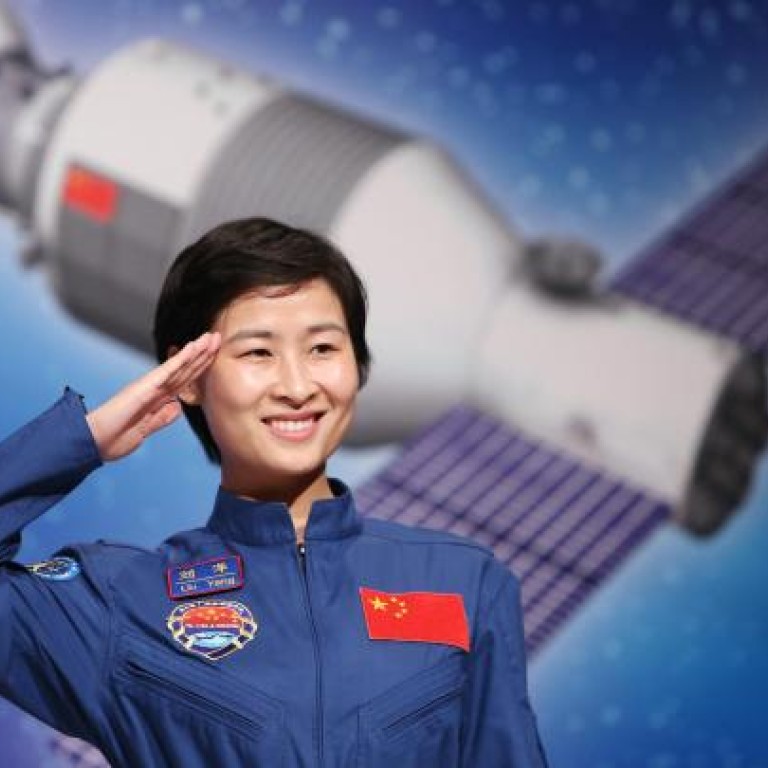
From astronauts to snipers, sky's the limit for China's female soldiers
Women are occupying more roles in the PLA, from snipers to fighter jet pilots, and experts say more are needed to boost the armed forces
When Major Liu Yang, China's first woman in space, returned to earth safely after a mission to the Tiangong-1 space station in late June, it reminded all Chinese people of an old saying proclaimed by Mao Zedong six decades ago: "Women hold up half the sky".
Liu, a People's Liberation Army representative at the ongoing annual session of the National People's Congress, celebrated International Women's Day with other NPC deputies in Beijing yesterday.
The significance of Liu's space adventure, coming five decades after Soviet cosmonaut Valentina Tereshkova became the first woman in space, is debatable, but it is an indication that women are playing a more significant role in the PLA.
Zhou Jianping , chief engineer of China's manned space programme and a Chinese People's Political Consultative Conference delegate, said on Thursday that another female astronaut would be sent to the Tiangong-1, aboard the Shenzhou X spacecraft this summer. Mainland media have speculated that Song Yaping , who trained with Liu, could be next.
China started training female fighter-jet pilots in 1997, choosing the trainees - including Liu and Song - from among hundreds of thousands of high school students aged between 16 and 19. Just as male pilots, they had to finish a four-year training programme at the air force's First Aviation Preparatory School in Changchun, Jilin .
The first female fighter-jet team was formed in 2009 after 12 years of rigorous training. When some of them were selected to fly over Tiananmen Square in Jian-10s on October 1, 2009, on the 60th anniversary of the founding of the People's Republic, they were given their first tailor-made uniforms.
More than 500 female pilots were trained since 1951, according to the , but before the fighter-pilot programme, all of them handled transport planes. The said the air force would also train women to fly bombers, early-warning aircraft, aerial tankers and other advanced airplanes.
Female soldiers were previously assigned to take care of the army's medical care, communications, artists troupes and other non-combat posts.
But in the past decade they have been given the same opportunities as men, becoming part of the marine force's special explosives team and snipers.
The said many male soldiers were surprised by the aptitude of their female comrades, especially Wen Min , the first female explosives expert and sniper in the marine corps' special troops. Her expertise was acknowledged by then-chief of US naval operations Admiral Gary Roughead when he saw her brigade train in 2006.
Li Jie, a naval expert, said women could not be ignored by modern military organisations "because their stamina, concentration and carefulness are much better than men". He called for more female sailors, in particular, for battle fleets.
Besides sending warships to pirate-infested waters off Somalia, China has sent more maritime and fisheries patrol vessels to disputed waters in the East and South China seas to protect Chinese fishermen and reinforce the country's sovereignty claims.
Many female university graduates from medical and foreign language schools have served on such patrols.
Major General Chen Zhishu, a CPPCC delegate, said women soldiers had never played a merely symbolic role. Five per cent of the PLA's 2.3 million personnel are women.
Chinese women's participation in military affairs can be traced back more than 3,000 years, to Fu Hao , one of the wives of Wu Ding , the 23rd emperor of the Shang dynasty.
The first woman to become a PLA major general, in 1955, was Li Zheng , who had been a child bride when she was only six.

